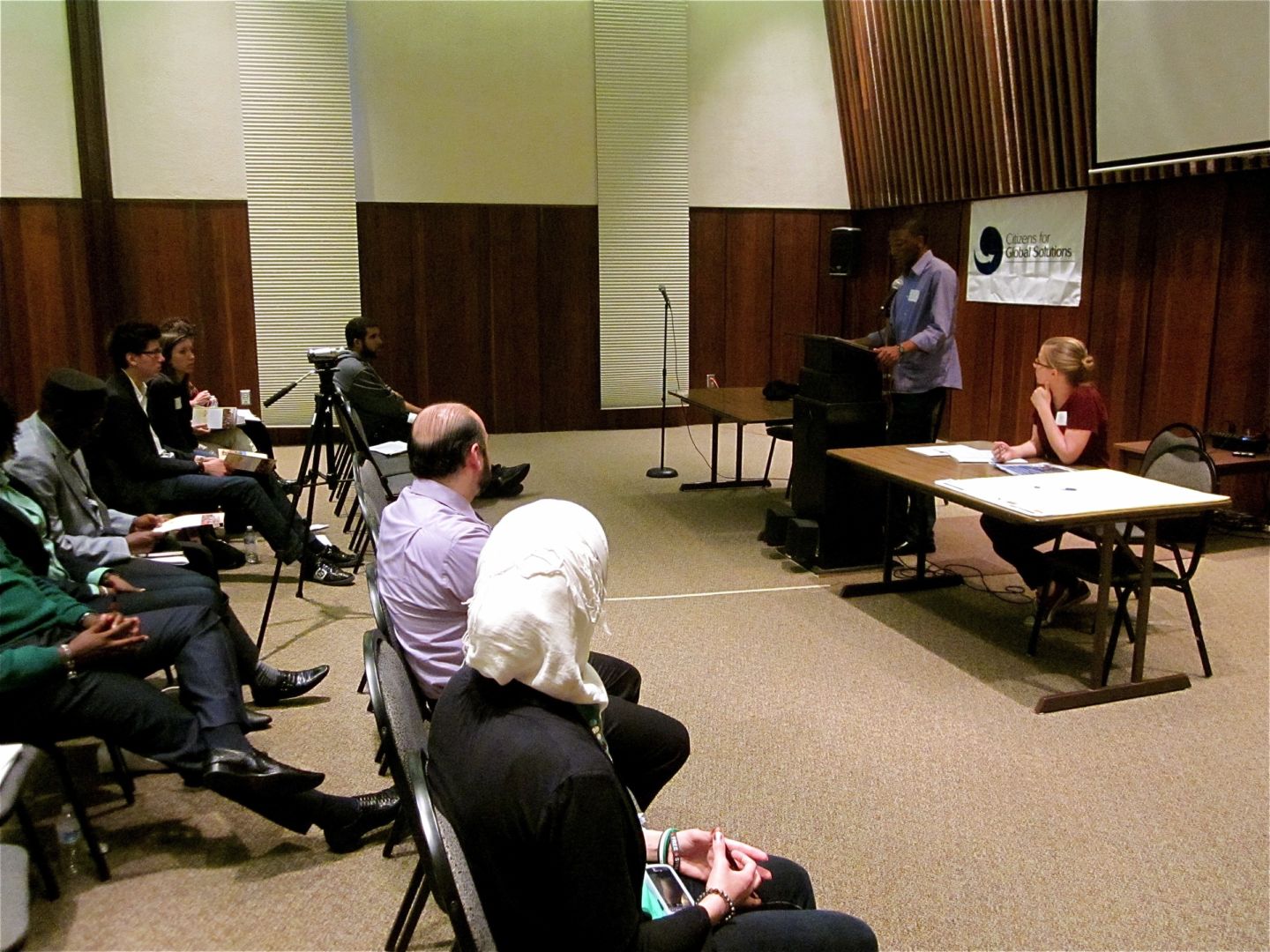U.S.A – Last weekend, I represented the Sentinel Project at the Indiana Genocide Prevention Summit hosted by Global Solutions (formerly known as Citizens for Global Solutions), at the Indianapolis Inter-church Center Corp in Indianapolis, Indiana. The summit was well attended and the audience comprised a diverse group of activists, students, community leaders, genocide survivors, academics, and other people from all over the world.
During the summit, I led the breakout session on “Crisis Mapping and Early Warning Systems for Genocide Prevention” which is the core of our work here at the Sentinel Project: building an early warning system to identify communities at risk of genocide by identifying and characterizing genocidal risk factors and monitoring indicators that increase or decrease the vulnerability of a communty’s risk of genocide. Learning from past genocides in Germany, Armenia, Cambodia, Bosnia, Rwanda, Kosovo, and Darfur, we have not only come to an academic understanding of how genocide is likely to unfold through Gregory Stanton’s Eight Stages, but we have also come to a greater understanding that genocide is both preventable and predictable. I explained the Sentinel Project’s comprehensive framework that combines genocide research, information technology, and risk management into a single framework for genocide prevention.

Henry Dambanemuya, Research and Technology Analyst speaking at the 2012 Global Solutions Genocide Prevention Summit in Indiana, USA.
A lot of people appreciated how information communication technologies (ICTs) are incorporated into our genocide prevention framework through our current Threatwiki system and Ground Information Network. GIN is a creative ICT tool that we are currently developing in order to gather eyewitness accounts, analyze, verify, forecast, and broadcast the vulnerability of a community’s risk to genocide during the early stages before genocide begins. This way, we hope to promote and improve efforts to protect civilians by engaging and empowering threatened communities with effective non-violent prevention and mitigation strategies so that they can be able to prevent their own genocides from happening. I also explained how engaging local communities in affected regions is key to our framework because even though we heavily depend on ICTs, they are only a small part of the solution. The major part to our solution are vulnerable civilians in the affected regions, hence our need to work through local community leaders and organizations such as Sisi Ni Amani in order to implement awareness and education programs.
“People on the ground need to know how the system works, what it can and cannot do, what to expect and what not to expect from the system.” – Christopher Tuckwood, Co-founder.
Don Kraus, the president of Global Solutions, gave the keynote address on “Preventing the Crime of Genocide” and expressed the need for a “global 911 system” for genocide prevention. Nora Basha from the Syrian-American Council recounted the current situation in Syria and Kizito “Z” Kalima, shared his testimony as a Rwandan genocide survivor and human rights activist. The Conflict-Free Campus Initiative student director, Ellie Hamrick, discussed the link between our consumer electronics products, natural resources, sexual violence, and mass atrocities in the Democratic Republic of Congo and how students on college campuses can raise hope for Congo. Also present was Claude Gatebuke, another Rwandan genocide survivor and 2010 Carl Wilkens Fellow, who shared the lessons learned from the anti-apatheid movement and how non-violent strategies such as global pressure can help end mass-atrocities around the world.
Overall, the summit was a great success! It was an honor to have the Sentinel Project represented at Indiana’s first-ever genocide prevention summit. We got a lot of contacts and people interested in the work we do in preventing genocide and mass atrocities. This was a great outcome as we are constantly searching for volunteers, subject matter experts, advisors, and partners to network with. We hope to continue expanding our network as we strive to achieve our mission to end genocide.
